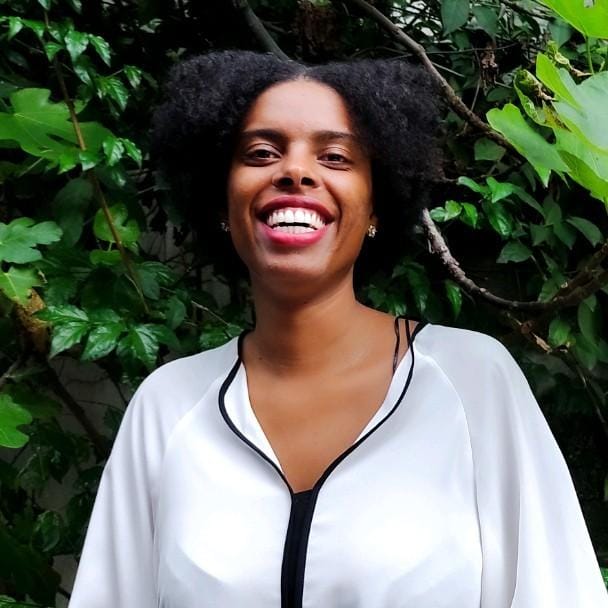The "sharing pedagogy": Body, Emotions Language, and Performance
- Monique Prado

- Aug 8
- 3 min read
Updated: Aug 26
Inspired by contemporary intellectuals such as Leda Maria Martins and Tássio Ferreira, who have been developing pedagogies rooted in Africanity and the African diaspora, I have also been focusing on the praxis in the classroom with an approach grounded in affects, in order to understand what Black women and their experiencies together are capable of producing when the educational spaces are safe.

Here, I will refer to this as a "sharing pedagogy", recognizing classes where they can potentially talk about their feelings, emotions and perceptions beyond the goal of speaking a new language. The exchange of languages — whether through orality, gestures, or embodied performance—expresses a network of subjective agencies, from both the one who speaks and the one who listens.
I bring this topic for discussing the relational experiencies and likely bond that suppose to take place during class between two Black women engaged in embrace all the sentimental layers that can going one through the leraning journey. Therefore, a "sharing pedagogy" amplifies the possibility of creating strong ties beteewn teacher-student fugures. In this sense, we can see how body, lived experience and all emotions are linked valueing intersubjectivity as a powerful tool because both have backgrounds which help to estabilish a mutual connection that genuine can generate a synergistic effect to one another.
When we, as teachers, kae rooms to embody student's emotions and affecs, allowing them to the permeability of the whole, it's a win-win pedagogy because the earning transcends as taught by Bantu peoples in their understanding of NTU—a force marked by the presence of vital energy.
The effect of this is the transformation of the pedagogical space into a stage for mirroring, welcoming, or even total estrangement— we navagate multiple kinds of effects: infatuation, rage, frustration, euphoria, loneliness, healing, empathy, and courage. For instance, when it comes to learn English language, it is quite common that in the first classes I hear confessions like: “I feel stuck,” “I don’t like English,” or “I can read and write, but I just can’t speak.” Usually, the first months are painful because the barriers are already there. Often, due to previous methods that require an Americanization of accent. Over time, as they connect with their own needs and skills, it flows more freely. Then they start to share things like: “Wait, That's it!?” “It’s not that hard,” “I’m thinking about apply for an exchange program". “I’m so focused on learning this thing even if it's out of sheer hate.”
Otherwise, whe it comes to cultural and literature contexts, I feel the flow is more fluid, and the exchange of experiences circulates through the body like running water. For instance, when participants of some literature workshop are invited to reflect on the work of Brazilian authors such as Beatriz Nascimento, who developed the idea of the Corpo Atlântico (Black Atlantic body), Lélia Gonzalez, who coined the term Amefricana (Amefrican), Carolina Maria de Jesus with Quarto de Despejo (Eviction Room) and Neusa Santos with Tornar-se negra (Becoming black) , we saw how the collective body exist in the room because they are not afraid of show the power of intersubjectivity—“I am because we are,” as recognized by the Bakongo people in their notion of unity-collectivity.
The classroom, through the historical-bodies of these women, begins to outbreak in tears, excitement, and recognition of their own strengths, often connected to the life stories of Black women in their own families or somebody they see as a role model helping them to build their journey, regard their hair, their image in the mirror, their emotions or even dealing with their absence or loneliness. All of their emotions are stitched together resulting in verbal and/or performative communication.
The "sharing pedagogy",embraces the complexity of the transatlantic body that carries banzo, the conscious or unconscious on their African ancestry especially because the transmission through the body is there recreating their process of learning and keep the epistemology in the diaspora context, valueing both subjectively and collectively repertoire.






Comments